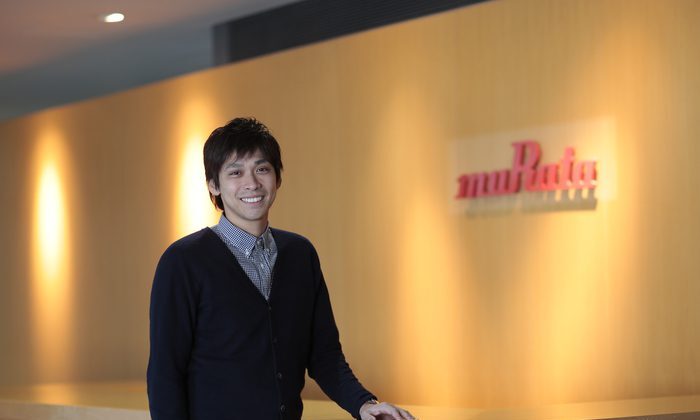Good people are the essence of good companies. Every company is looking to find and retain good talent, which is even more challenging for companies enhancing their global operations. On a recent trip to the US, Cristian Vlad visited Murata North America Global HR Manager Kazutomo (Kevin) Kawai to discuss how he his helping his company develop global talent.
CV: You were involved in talent operations with Murata during your time in Singapore, and now again here in the US. What are some challenges you face in this role?
KK: More than 90% of Murata’s sales revenue comes from overseas, so we’re quite a global organization. When it comes to internal talent operations, however, the Global HR Division in Japan is the only department creating policies and giving instructions. HR teams in our overseas offices then operate and deploy these into local actions. In other words, yes, we are quite global from a business perspective, but you could also say that we are very “Japan-oriented” from a talent operations point of view. Under these circumstances, my mission in Singapore was to manage the development of next-generation leaders for Murata ASEAN, the organization responsible for operations in Singapore, Malaysia, Vietnam, the Philippines, and India.

There, I was confronted with three main challenges:
1. Organizing and overseeing talent development in the region
2. Selecting next-generation leaders and developing assessment practices
3. Developing career paths of next-generation leaders and devising a retention strategy
The first was extremely important to us at the time. Enhancing local operations was, of course, an immediate necessity, but even more importantly, there was an urgent call to roll up my sleeves and work with the local top executives. We needed their full commitment of time, money, and effort into talent development, which also required them to feel a strong sense of urgency. In my experience, this was the primary reason a talent development project suitedーor didn’t suitーthe ASEAN region. Local top executives became mentors for candidates, supporting them throughout the process of solving management issues. Keeping those executives involved was really an ongoing effort. Even successful development of talent could become a failure in our overall mission if an individual ultimately chose to leave our organization. Therefore, we constantly need to consider how to best retain our talent, how to continuously engage and motivate them, and how to help them bring their whole selves to work for a healthy and sustainable business.

Here in the US, I’m working on similar issues, but I’ve grown to realize that things tend to work a little differently. We need a different approach. It’s the same company, of course, but we need to act locally, with the local cultural sensitivities in mind. One pattern simply does not fit all. Diversity here has its own dynamismーthere are always new and varied points of view, all anchored in our history here in the US. We have grown differently in different regions, and this is all related to the economic, social, and political environment of each country, as well as the availability of technology and the channels we have chosen for growth in each region.
CV: It sounds like you really have a lot on your plate!
KK: It’s definitely a lot, but there certainly are no short cuts to talent integration and innovation in global business practices. Here at Murata, we change and challenge conventions in every single aspect of our business, including talent strategy. We need to constantly envision the future of work, with all the regional sensibilities in mind. This includes structures to support meaningful business value, sustainable global growth, and customer engagement.
CV: Could you explain how you actually do that?

KK: Absolutely! First of all, this is an orchestration of effortsーthere is no single formula for success. But we’ve found it extremely effective to help our international associates understand and embrace SHAZE, our corporate philosophy. SHAZE, to us, is an illustration of the ideal company, the business we all want to nurture, cherish and leave behind for future Murata generations. We’ve translated it into more than ten languages and shared it with our colleagues overseas. SHAZE is visibly displayed at our overseas offices and introduced to newcomers through local on-boarding processes.
In addition to this, we have created a short SHAZE movie, workshops and seminars around the world. There are constant video messages from top executives emphasizing the importance of basing business judgment and daily operations in this philosophy. SHAZE is universal and easy to understand. It is, therefore, both important and easy to connect it with our work.

Of course, it’s unrealistic to imagine that all employees will understand and practice SHAZE 100% of the time. Each person tends to connect better with a certain part that’s close to their heart or supports their aspirations. We support that. After all, there’s something in SHAZE for everyone. I personally like the bit about being trustworthy. It resonates with me and has guided me through times of hardship and struggle.
Basically, if you want to change behavior, you need to provide people with opportunities to connect with ideals that they truly believe in and want to act upon. This is what will make our global talent a great force and unrivaled resource for our company.
CV: What else do you need to do moving forward?
KK: As I mentioned earlier, Murata is still a Japan-oriented global company. Indeed, our global board of directors and executive officers are all Japanese. Depending on how you view it, this may not always be such a bad thing. Sometimes it is faster to discuss and reach certain decisions without language or cultural barriers. However, when we go back and remember that more than 90% of our sales revenue comes from overseas, we have to agree that there is a benefit to some diversity in upper management. To my mind, if we are successful developing global talent in each region outside Japan, leaders from other countries will naturally emerge. This may be the most visible and outstanding result of our work today.

To that end, we need to focus on a strong and healthy Murata culture throughout the world. We need to train and urge future leaders, both in Japan and overseas, to embrace diversity in all its forms: age, gender, nationality, sexual orientation, and aspirations. Leaders must understand that diversity is a core competency for innovation, growth, and transformation.
Our next challenge will be creating talent pools in each region to find candidates for global leadership. This will have to be a global strategic effort focusing on 1) creating an healthy local culture where leaders naturally step up and grow, 2) increasing the number of managers who are committed to nurturing future generations of innovative associates, and 3) educating all of our associates into a healthy mindset of personal growth and continuous value generation.
We all come to work to contribute meaningful value for our customers, ourselves, our shareholders, and our society. To do so, we need to constantly innovate. We cannot succeed by sticking to convention, nor can we put our bets on a commoditized strategy. Our work today needs to be the strong foundation of an agile, organic, and sustainable tomorrow.




